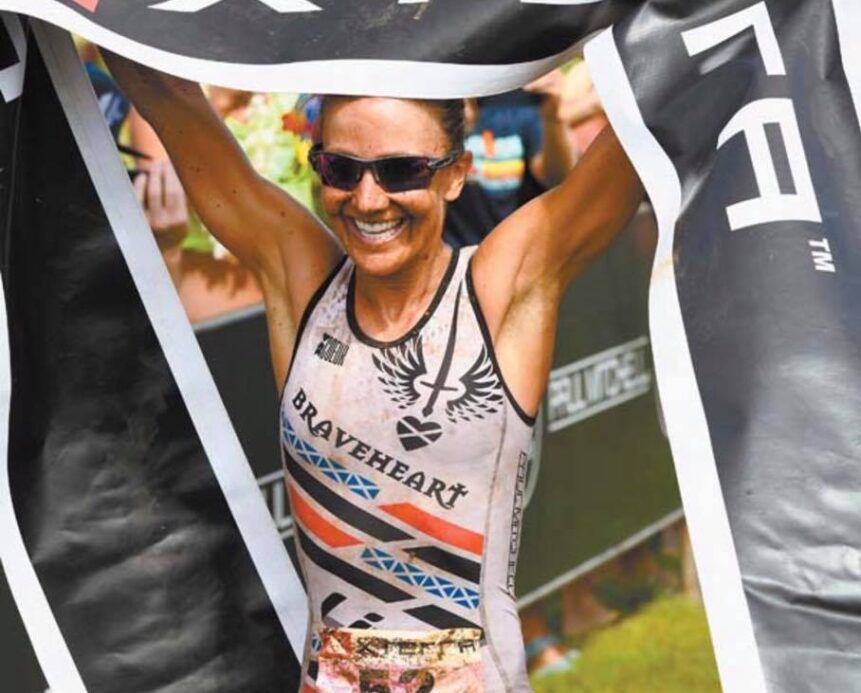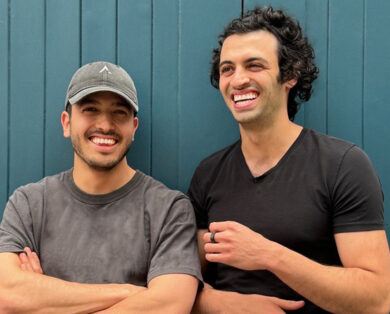- Portfolio News
- 15 July, 2024

In conversation with 5x World Champion triathlete Lesley Paterson and Dr Simon Marshall, former Professor of performance psychology and resilience.
Building a business is incredibly hard, and the startup ecosystem is a competitive and high pressure environment. Founders need to be resilient in order to deal with the challenges and stresses along the journey. And when things get tough, the expectation has always been that you just have to put in more hours.
But peak performance cannot be achieved simply by working harder, for longer. It’s counterproductive, and 83% of founders agree that it bears diminishing returns. If we look to other high-performance disciplines – such as professional sports – it’s clear that the formula for success is much more holistic.
Following the launch of our Founder Wellbeing and Performance Platform, our most recent webinar saw world champion triathlete Lesley Paterson and professor of performance psychology Dr Simon Marshall dissect some of the habits of world-class athletes, and what start-up leaders can learn from them. Here’s what we learned:
Founders – like athletes – are uniquely driven individuals. But success takes a village.
To become a world-class athlete, your internal drive, passion and dedication has to be pretty relentless. The same could be said for many start-up founders.
But there can be a darker side – known as the passion paradox. Conscientiousness, and being intensely goal-orientated, can become so out of hand that it becomes addiction, and you lose sight of the bigger picture. So how do you find balance in an unbalanced life?
Lesley recommends finding like-minded people to talk about this with – people who understand the unique challenges you face, and with whom you can build a mutually beneficial and supportive relationship. In Lesley’s experience, surrounding herself with a team – with meaningful relationships created through shared vulnerabilities – has been her most powerful tool.
My success has been about creating a team. People I love, respect, gain mentorship, and critically who I give back to. We find purpose and meaning by transcending ourselves and giving back to others.
Lesley Patterson
The difference between win or lose often comes down to mindset.
Simon tells us that what makes the elite ‘elite’ is the ability to manage stress. At the end of the day, humans are emotion-driven decision makers. When you’re in an environment that your brain detects as stressful, your frontal cortex (aka the rational brain) is chemically blocked. It’s what’s known as the fight or flight response.
Managing stress, and the ability to cope with incoming demands on your time, without losing focus seems to be the biggest single differentiator between those that are world-class and those that are not.
Simon Marshall
Lesley reflects that early-on in her career, it was negative emotions, doubts, imposter syndrome, and reminders of previous failures, that held her back. She used the analogy that criticism is like velcro, and praise like teflon. You might receive nine pieces of positive feedback, but it’ll be the one piece of negative feedback that haunts you.
But this is a fundamental part of our biological make-up. Everyone suffers from these negative emotions. What will set you apart is your ability to master them.
Everything revolutionised in my training when I mastered the emotional training – learning to manage negative thoughts and feelings. That’s when I took off, and started winning world titles.
Lesley Patterson
You cannot build resilience without recovery.
For a long time, Lesley thought her ‘golden ticket’ was her ability to keep pushing, to train harder, faster and longer than anyone else. But ultimately, that was what led to her downfall. Following a period of intense overworking, Lesley went from being the most successful she had been – a world champion, beating her male counterparts – to completely bed-ridden. It was a harsh wake-up call.
Fundamentally, the human body was not designed for endurance exercise eight hours a day, seven days a week. Nor was it designed to work 100+ hour weeks, sleeping in the office, eating poorly. When you’re competing with the world’s best, ‘just take a day off’ isn’t going to fly.
Indeed, your emotional and physical responses are inherently linked. If you’ve had an emotionally draining day, your ability to deal with physical challenges drops, and vice versa. As Simon put it, it all comes from the same bank account.
You cannot build resilience without both emotional and physical recovery. And you need to find that balance in the long term.
Yes, we can all work hard. But if you don’t recover as hard as you push, you will break.
Lesley Patterson
Race day: Stress management strategies from performance psychology.
Every experience you have is managed by your brain and central nervous system. Your sympathetic nervous system is like your body’s gas pedal – activating to prepare you for an impending challenge or threat. Meanwhile, your parasympathetic nervous system is like your body’s brake pedal, bringing you back to calm.
Mastering how and when you use these pedals – and balancing them with the happy hormones of dopamine, oxycontin, serotonin and endorphins – is a skill that will set you apart.
Simon and Lesley shared a few strategies for dealing with stress and those high-pressure moments – whether it’s race day or an important meeting or business challenge.
- Vocalise all your negative emotions. Do this right before a big event until your brain has run out of nasty things to say. Let it really run dry – this could be as long as 3-5mins – without interruption from rational thought. Neurobiology shows that this exercise decreases blood flow to the limbic system – the emotional part of your brain responsible for all those doubts and negative thoughts.
- Scan the horizon (self generated optic flow). Your eyes are critical for managing stress – the neural retina is an information superhighway to all of our fear centres. When you scan your eyes along the horizon, from right to left and left to right, your brain sends receptors to the fear centres to calm down. This evidence based strategy is the basis of EMDR therapy: moving your eyes from left to right and back makes it easier to process stressful information and calms you down, reducing the fight or flight response.
- Breathe – specifically, the physiologic sigh breath. This is the most effective way to calm yourself down in 3-15 seconds. The method consists of a breathing pattern of two inhales through the nose followed by an extended exhale through the mouth. It is a biologically effective way of reducing cortisol, adrenaline and stress, and only needs to be done 2-3 times to achieve peak benefit.














